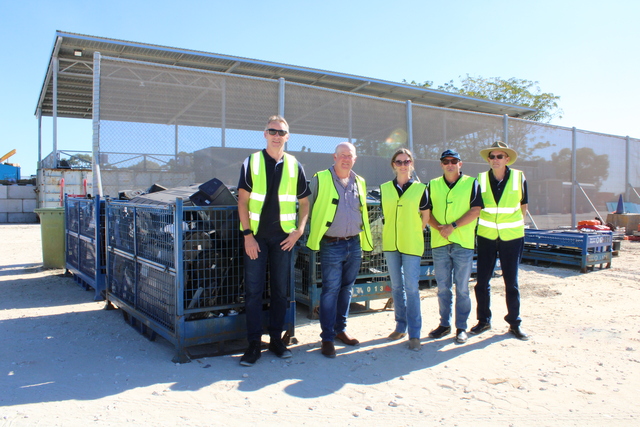This year’s Australia Day Awards (ADA) caused a kerfuffle on two fronts. First was the surprise that an Order of Australia (AO) was awarded to the Chief Executive Officer of Australia Post for basically doing his job. The second was the low representation of females.
On the gender issue (there were just 252 women out of a total of 727; in other words about one-third), I figure that the Prime Minister should instruct the ADA to ensure a minimum 45 per cent female representation, and get on with it.
I rang the ADA Secretariat to discuss this, and was greeted with the Bill Lawry ‘Straight Bat’ response that the nomination form is on the website and anyone who meets the criteria can be nominated. I thanked her for that information, but went on to suggest that there is an inbuilt bias in the system, specifically that government officials, politicians, the military, etc. know how to write submissions, hence they got most of the gongs. I also instanced cases where officials write these submissions to ingratiate themselves with their bosses. The ADA official took my name and said the CEO would ring me when he returned. I am still waiting.
Anyway, if the CEO had rung me, I’d have related my story from my days in the Industry Department. An engineering consultancy CEO collared me to provide profuse thanks for the AM that he’d just received. He’d spent 18 months chairing an industry taskforce (and doing an excellent job). But I said, “I know nothing”. Later one of my staff fessed up that he’d spent considerable departmental time and effort on the submission.
Similarly, a Cockatoo member relates a story from the Department of Defence. Some moons ago there was a bloke in the next office beavering away on a spreadsheet. It was a partial list of army property, so that the Defence actually knew what assets it owned. It was the beginnings of an Army estate database. For his efforts, he was rewarded with a Public Service Medal. It generated much mirth among his workmates.
Now both the above gentlemen were surely worthy recipients, but my point is that skilled submission writers – with the right networks and knowledge – were on tap to draft quality submissions on their behalf. Conversely, folk outside government circles don’t need or have those skills. This is the inbuilt bias I am referring to.
As regards the one-third female representation, this really isn’t good enough. But it probably results in their networks not intersecting with government networks. This is doubly so if they’re in the Bush.
A case in point is my late Aunty Doss in West Gippsland. She devoted her life to helping others and the social fabric of her community. She was involved in the mothers’ club at school, the Methodist Ladies Guild, the local football club (life member), the local band (where a son was the tuba player), the RSL Women’s Auxiliary (catering for hundreds of weddings, funerals), the CWA, the Hospital Auxiliary, etc.
There would be literally hundreds of thousands of Aunty Dosses around Australia. Might I therefore suggest that councils offer up a staff member with submission-writing skills to lend a hand? The Australia Day Awards website has the details.
Bishop-style collaboration
Foreign Affairs Minister Julie Bishop recently took the unprecedented step of recalling our senior diplomats to help shape the Turnbull government’s foreign policy. Some 113 ambassadors, high commissioners and consuls-general will return for three days. The meeting will include the Prime Minister, Trade Minister and a representative from the Opposition.
This is a brilliant move. No wonder she is the best politician going around. It brings real on-ground expertise to the task, it will surely empower the diplomats, and it will strengthen their bond with their Minister. And it’s the interaction and corridor talk with the other diplomats that would be so valuable.
Minister Bishop is a naturally collaborative person by all accounts. I am reliably informed that when the Liberals were in Opposition she attended a workshop in Boston on “collaboration and clustering concepts”. It apparently fired her up, and on becoming Foreign Minister, she established the Innovation Xchange, which is modelled on things she embraced in Boston. The Innovation Xchange seeks collaborative partnerships to “save lives in the Pacific, and help Australia better prepare for natural disasters and humanitarian crises in the region”. There are opportunities for local government involvement if you are interested.
Problem solving at the regional level
Could Julie Bishop’s collaborative initiative be replicated by local councils (albeit in a slightly different way)?
To explain, the big problem in regional development is coordination failure – in other words, getting people in your community, as well as Canberra or State Parliaments to work across their silos, and to then coordinate their actions within a reasonable time frame.
Take problems like the ice epidemic or creating jobs in rural regions. These can only be worked through with strong collaboration at many levels. The trick is to engage the players, and to develop Action Agendas that tap their ideas and engage them in win-win solutions within clear timelines. These are the concepts that Julie Bishop would have been exposed to at the Boston cluster workshop.
Rod Brown is a Canberra-based consultant and lobbyist specialising in industry/regional development, investment attraction and clusters, and accessing federal grants. He also runs the Cockatoo Network.
Phone: (02) 6231 7261 or 0412 922 559
Email: apdcockatoo @iprimus.com.au
Blog: investmentinnovation.wordpress.com (750+articles)







